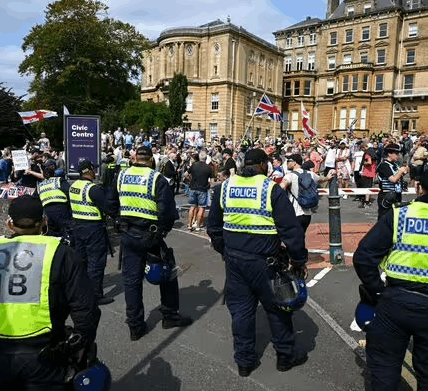The UK government has introduced new age verification methods as part of the Online Safety Act, and many people are using VPNs to bypass the new rules

Some people are concerned VPNs could face tighter restrictions (Image: Getty Images)
Since Labour rolled out fresh age verification measures under the Online Safety Act, VPNs have witnessed a surge in demand.
Virtual Private Networks work by masking a user’s IP address and can fool websites into believing someone is browsing from a different nation. This effectively enables users to bypass age verification requirements from sites mandated under the new legislation.
Yet with the Government pushing these controversial regulations and stressing their vital role in protecting younger people from online dangers, many fear this straightforward method of circumventing the checks might face prohibition. A worried user on Reddit posed this very question, asking whether authorities could actually outlaw VPNs.
Challenges in prohibiting VPNs
User GenericUser104 posted in the r/homelab subreddit: “I’ve recently started using a VPN again. I used one a while back to sail the seas, and now I’m using Proton to get around the Online Safety Act in the UK. Now there’s talk of them banning VPNs too. Surely this isn’t something they can do-and if it is, how would I put things in place so it won’t affect me?”
In response, another user pointed out the technical challenges of implementing a VPN ban due to their widespread use in both business and personal settings. User hk135 stated: “VPN’s are used extensively in the Corporate world for remote working, this is where they originated as a means to securely connect to the network at Work or interconnect various offices and sites.
“Blanket banning VPN’s is a non-starter for corporate reasons. Not just this but also depending on how you define a VPN, if it is encapsulating traffic in an encrypted tunnel, then SSL in general would be covered.
“What about encrypted connections to Proxy servers, that would redirect traffic as well. The logistics of banning VPNs or even anything that hides (intentional or not) the source IP address is unworkable, it would make any kind of security on the internet illegal.”
However, some users noted that other countries have already imposed bans and restrictions on using VPNs domestically. For instance, citizens in China can only use certain government-approved VPNs.
Meanwhile, the United Arab Emirates enforces strict laws against using VPNs to access restricted content, which can include calling services like WhatsApp.
Similarly, user theantnest claimed: “As somebody who lived and worked in Dubai for a number of years, I can tell you that banning VPNs is totally possible. In the UAE every VPN website is blocked, it just won’t load. And then they use deep packet inspection to detect VPN use and then throttle the traffic.
“This even works on private VPNs like shoving a raspberry Pi running OpenVPN onto the network at your grandmothers house. The one caveat is that the UAE only has 2 ISPs that are both government owned. For it to work in the UK they would need to legislate that all ISPs must block VPN traffic by law.”
Does the government plan on banning VPNs?
Whilst worries are mounting over a possible prohibition on VPNs, there is presently no sign from the government or other official authorities of this being implemented.
Science Secretary Peter Kyle told Sky News last month that he recognised VPN usage was increasing but emphasised “the vast majority of adults” in the UK were adhering to the regulations. At that time, he stated no proposals were in place to prohibit VPNs, but added that he was examining “very closely” how they are being utilised.
He added that “very few children” were actively seeking harmful content online and that the problem surrounding the legislation was that “harmful content comes and finds them”. Melanie Dawes, the chief of Ofcom, warned MPs in May that individuals could utilise VPNs to bypass the restrictions.
“A very concerted 17-year-old who really wants to use a VPN to access a site they shouldn’t may well be able to,” she admitted. “Individual users can use VPNs. Nothing in the Act blocks it.”
Moreover, a representative for the Age Verification Providers Association stated that high-quality VPNs offer a more secure connection to the internet. They also mentioned that AVPF does not endorse a ban on VPNs.
The AVPF emphasised on its own website that digital services wishing to comply with the regulations could detect VPN usage, assess risk through behavioural cues, and give users the choice to verify their age or confirm their location.
A Government spokesperson said: “The Online Safety Act places no curbs whatsoever on what adults can say, see or access on the internet, unless it is something that would already be illegal, offline.
“However, we make no apology for holding platforms to account, to ensure they take steps to prevent children from bypassing safety protections. This includes not encouraging content that promotes VPNs or other workarounds, when they are aimed specifically aimed at young users. More broadly, there are a range of legitimate reasons why users might use VPNs which do not cut across children’s safety online.”
